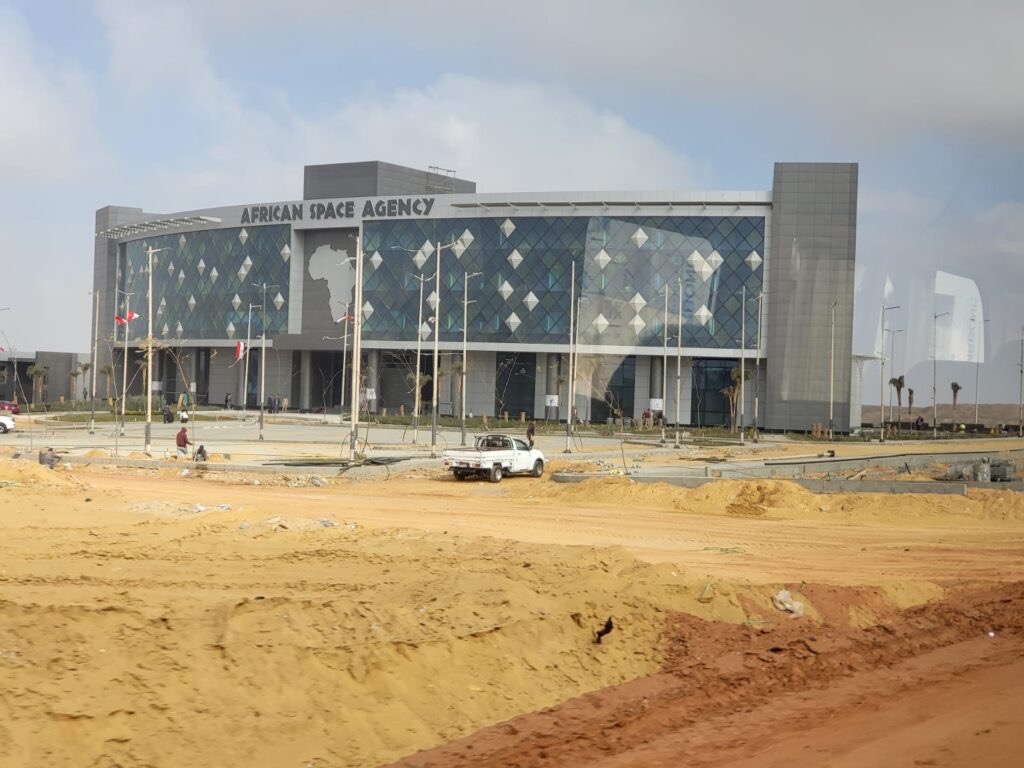by Joshua K. Faleti

Africa, much like the US, Europe, and China, has demonstrated its interest in using space as a means to a societal end. In Africa’s case, the continent has awakened to how space, specifically space science and technology, can assist in addressing Africa’s social and economic challenges. The way the African Space Strategy puts it, Africa needs “an integrated, prosperous and peaceful Africa, driven by its own citizens and representing a dynamic force in the global arena.” The rapid global development of spatial activities is a nifty representation of the fact that the same awakening happened in other parts of the world way before Africa. This may mean that Africa is late to the party, but perhaps it’s more encouraging to see it as Africa being able to learn the best model for space development from other more advanced spacefaring nations.
What Space is for Africa
As the space race began in the 50s, humanity realised the vast and immense potential of space, that Space is a means to an end. As a result, most national and continental space policies identify and choose the specific goal they intend to leverage Space for. For Africa, Space is a means to improve the perennial challenges that face the African citizenry. Africa currently struggles with ensuring sufficient provision of necessities like food, shelter, a clean and healthy environment, and proper education for its growing population. Because of this, the Continent has resolved that the space sector is more than a high-end technology sector – that it also “provides the tools necessary for effective decision making in the management of natural resources and providing essential communications links, especially to rural communities”.
One thing is clear: Africa has prioritised the development of its socio-economy through space technology.
However, the African goal lacks a commercial bite that may see it end up in the same situation the EU is desperately trying to leave. The African space industry enjoys a unique relationship with its European counterpart; this functional partnership aims to and is indeed beneficial to Africa, with several programs targeted at jointly developing standards of living in Africa. It is on the basis of this partnership that Africa can learn what not to do from Europe’s commercial antics and maximise the African space market’s commercial potential as early as possible.
Europe as a Mirror for Future African Commercial Challenges
Africa’s drive to leverage Space to develop the well-being of its citizenry is very similar to the EU’s recognition that Europe cannot afford to lose out on securing the benefits of space for its citizens. For example, the European Commission identified the security of EU citizens as one of the three main objectives of its work program. Furthermore, the 2007 Resolution on the European Space Policy notes that “the economy and security of Europe and its citizens are increasingly dependent on space-based capabilities which must be protected against disruption.”
The European Space Program has recently changed how it approaches the space industry and its commercial potential. This change has resulted in a renewed interest in increasing private commercial participation in its regional space activities, perhaps in response to how the United States is harnessing the benefits of an efficient commercial space industry and its thriving private sector. This change in interest is crucial in light of the global space economy’s potential to grow to as much as €1 Trillion. Admitting as much, ESA Director General, Josef Aschbacher’s goal is to “make Europe (a) fertile ground for ‘New Space’ operators”. This relatively recent realisation has spurred the recent commercialisation vigour in the EU space scene, perfectly exemplified by the establishment of ESA’s Commercialisation Gateway in 2021. This renewed vigour is partly because Europe has realised that it has a lot to catch up with the United States in terms of developing a thriving commercial space market for its private sector.
An African Commercial Dilemma
Funding is one of the primary challenges any space program will face in executing its space strategy – Space is very capital-intensive. This results in the age-old pattern where only African Governments (as opposed to private outfits) can make any valuable investment in the space sector. Because of this, national governments are – and indeed must be – responsible for forerunning any national program or commercial initiative in their respective space industries. This is admirable and offers a reasonable solution as it ensures access to important space services. However, Government investment may limit the commercial potential of any sector in which it participates. It is always difficult to compete with the Government, especially when its products are free, open and accessible, leading to a dilemma.
In Europe, many fundamental or backbone space projects with immense commercial potential are within the purview of governmental agencies. Time and experience have demonstrated that space sectors and applications that address a fundamental need – especially for the general population, also inherently possess significant commercial potential. Coupled with a governmental duty to ensure a minimum standard of well-being for its citizens, Space History shows that this human-centric approach to space exploitation in any sector is potentially antithetical to that sector’s optimal commercialisation. This reality plays a crucial factor in Europe’s reconsideration of its approach to space and its commercial benefits. Nevertheless, the reasons for this challenge in Europe are still present.
The Galileo global navigation satellite system, as well as the Copernicus Earth Observation program, perfectly captures the reality. Both programs are operated and funded by the European Space Agency and offer services that have high commercial potential for free or at a reduced rate. The idea behind these initiatives follows the European and African approach to space as a means for socio-economic development. However, it is telling that most Global EO companies are in the USA, and this may be partly because selling services that the EU gives for free or at non-competitive prices makes the EU EO market less appealing to investors.
The African goal lacks a commercial bite that may see it end up in the same situation the EU is desperately trying to leave.
The European pattern is unsurprisingly present in Africa’s growing space industry and, more seriously, is being aided by the same European space infrastructure. Most space projects in Africa are government-owned and funded, and necessarily so, with the aim of offering services for free or at non-competitive pricing. For example, the GMES and Africa programme is a joint programme co-financed by the European Commission and the African Union Commission and aims to adapt and use the Copernicus Programme data and services in the African context, especially with regard to the development of services for water, natural resources, marine and coastal areas. This initiative is great for the African population as it relies on free access to high-quality and open data from Copernicus, which would otherwise be costly. However, these are important sectors of the African EO market with immense commercial potential. Copernicus, while ensuring a similar positive benefit in Africa as in Europe, may also be limiting the African space market’s commercial potential, particularly the EO market, which is one of the most thriving in Africa. The similarity, for example, has culminated in Africa’s own European Space Agency equivalent, the African Space Agency (AfSA).
The African Space Agency will have several functions that aim to stimulate the development of Africa’s space industry, but its primary function is to implement Africa’s space strategy. The strategy emphasises developing an adequate regional space capability but notes that the capital-intensive nature of the space sector and the lack of a formal governance structure to advance a collective effort remains a bane. The African space strategy identifies the approach the continent intends to take regarding its space development, and one thing is clear: Africa has prioritised the development of its socio-economy through space technology. Africa can learn from Europe’s current challenges while also benefiting from the region’s partnership with Africa, and as a result, Africa must take care that its spatial ambitions do not compromise its space industry’s long-term private sector potential.

Faleti Kofoworola Joshua is an African Space Professional with a specific interest in how Sustainable Space Initiatives can help improve the socio-economic realities of his African heritage. He relies on his 4 years of experience in the African space industry to advise, understand, and interpret patterns and trends in the global space industry in relation to Africa. He was part of the team that worked on the AUC baseline survey towards the establishment of the African Space Agency. He was also part of the team that developed Space in Africa’s 2021 and 2022 African Space Report and was a panellist at the 2022 Newspace Africa Conference. Joshua is currently an editor and African expert (and more) at Spacewatch Global and aims to use his position to illuminate the African space ecosystem. Joshua also participated in the 2019 edition of the Manfred Lachs Space Competition and is a trustee at Learn Space Foundation





